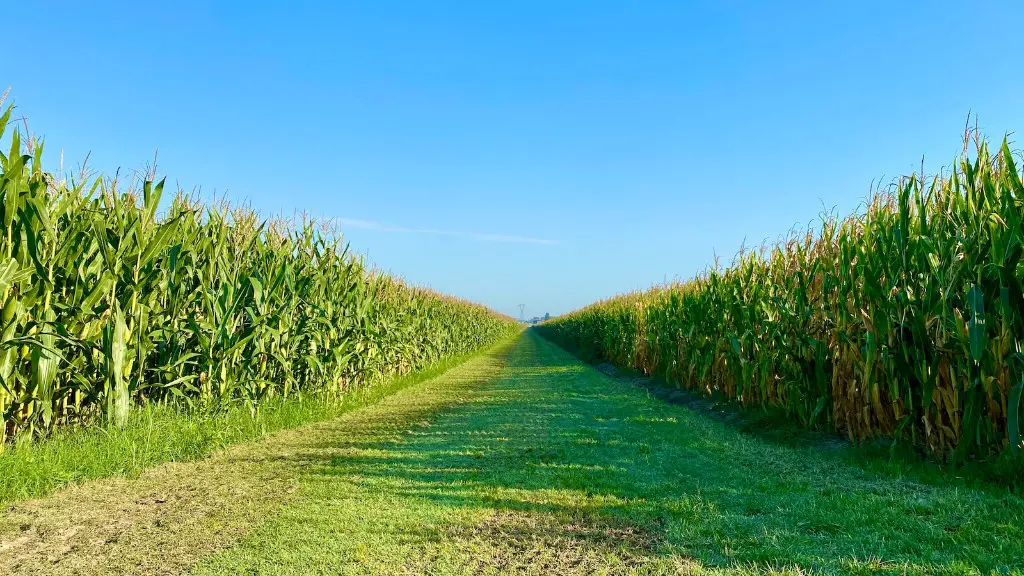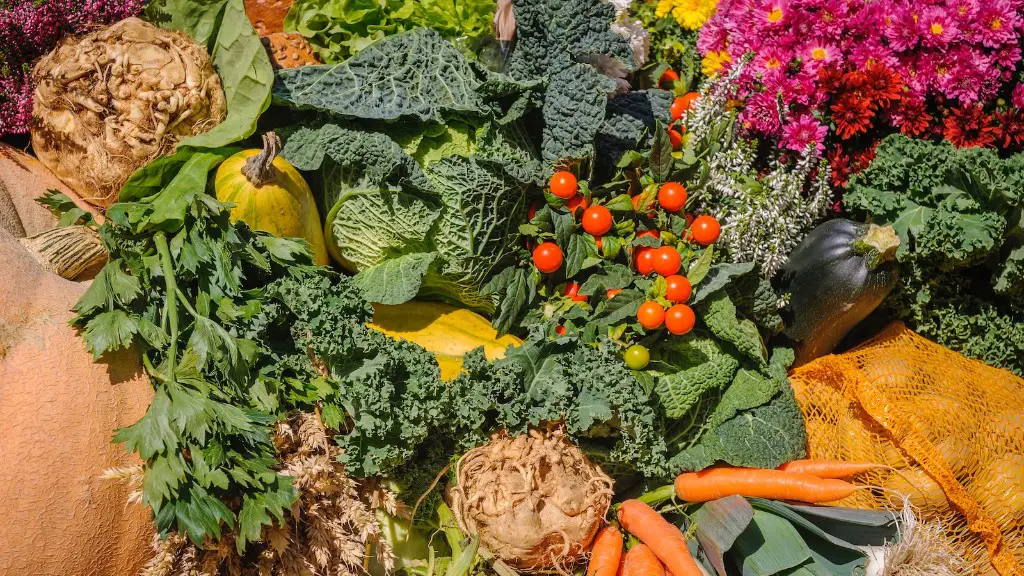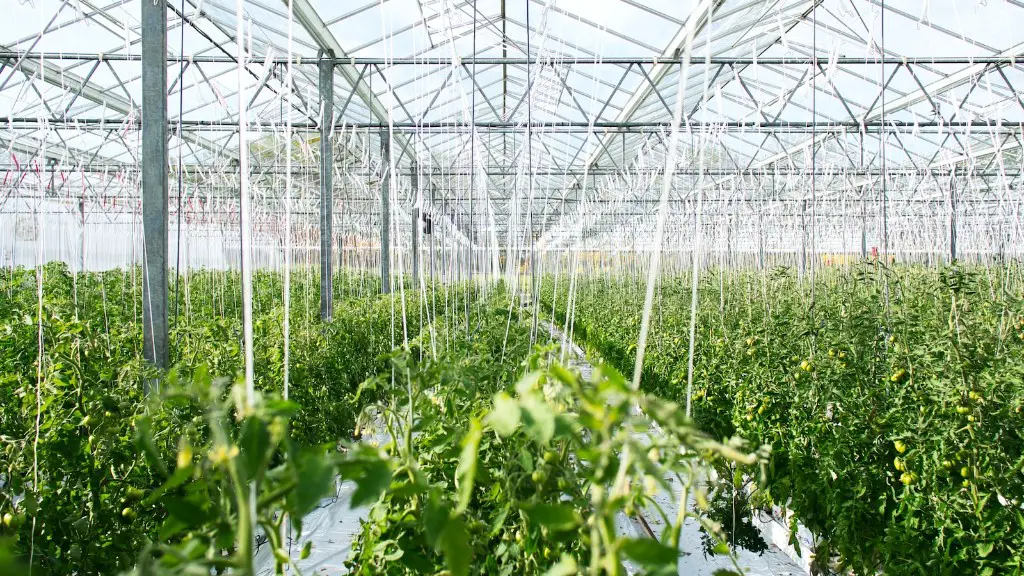Fermentation in agriculture is the process of converting organic matter into a more usable form. This can be done through the use of microorganisms, enzymes, and other chemicals. Fermentation can be used to break down complex carbohydrates, proteins, and fats. It can also be used to produce alcohols, acids, and other compounds that can be used in agriculture.
Fermentation is a process in which sugars are broken down by bacteria and yeasts to produce alcohol. This process is used to make beer, wine, and other alcoholic beverages. In agriculture, fermentation is used to produce biogas, which can be used as a renewable energy source.
Why is fermentation important to agriculture?
Fermentation is a process that allows food to cultivate its own colony of bacteria. These bacteria can be beneficial to the food and help to preserve it. In many cultures, fermentation is seen as a way to improve the flavor and texture of food.
Fermentation is a chemical process by which molecules such as glucose are broken down anaerobically. More broadly, fermentation is the foaming that occurs during the manufacture of wine and beer, a process at least 10,000 years old.
What is fermentation definition and examples
Fermentation is a process in which a substance breaks down into a simpler substance. Microorganisms like yeast and bacteria usually play a role in the fermentation process, creating beer, wine, bread, kimchi, yogurt and other foods.
Fermentation is a great way to preserve food and also to add some beneficial probiotics to your diet. Common fermented foods like kimchi, sauerkraut, kefir, tempeh, kombucha, and yogurt can all help improve your digestion, immunity, and even help with weight loss.
What is farm fermentation and how does it affect agriculture?
Fermentation is a type of biotechnology that uses microorganisms to create a chemical change that can produce food additives and animal feed. Fermentation can offer a number of benefits for food producers, including sustainability, health and product performance.
There is a lot of debate surrounding the health benefits of fermented foods. Some studies have shown that fermented foods provide many health benefits, such as anti-oxidant, anti-microbial, anti-fungal, anti-inflammatory, anti-diabetic and anti-atherosclerotic activity. However, other studies have shown no relationship between fermented foods and health benefits.
What are 3 examples of fermentation?
Fermented foods are foods that have been through a process of fermentation, in which microorganisms such as yeast or bacteria convert carbohydrates into alcohol or organic acids. This process can preserve food and enhance its flavor and nutrition. Some examples of fermented foods include cultured milk and yogurt, wine, beer, cider, tempeh, miso, and sauerkraut.
Fermentation is an anaerobic process in which microorganisms break down carbohydrates into alcohols or acids. This process is used by yeast and bacteria to obtain energy from carbohydrates.
What is fermentation give two examples
Fermentation is a process that occurs in the absence of oxygen. In this process, yeast or bacteria break down sugar or carbohydrates to produce alcohol or other products. Fermentation is used to make beverages (alcoholic and non-alcoholic), yogurt, and other products.
Fermentation is a process that is similar to anaerobic respiration, in that it does not require oxygen to occur. However, fermentation leads to the production of different organic molecules, like lactic acid, which also results in the production of ATP.
What are the 4 types of fermentation?
On the basis of the end product formed, fermentation can be categorized as follows:
Lactic acid fermentation: Lactic acid is produced from pyruvate in glycolysis.
Alcohol fermentation: This type of fermentation is used in the industrial production of wine, beer, and biofuel.
Acetic acid fermentation: Acetic acid is produced during this type of fermentation.
Butyric acid fermentation: Butyric acid is the end product of this type of fermentation.
There are many benefits to fermentation, one of which is that it makes vegetables more digestible. This is because the fermentation process breaks down the cellulose in the vegetables, making them easier to digest. Additionally, fermented foods contain higher levels of nutrients than non-fermented foods. This is because the fermentation process breaks down the vitamins and minerals in the food, making them more bioavailable. Fermentation also reinforces our microbiota, which is the community of beneficial bacteria that live in our gut. This is because fermentation produces short-chain fatty acids, which are a food source for gut bacteria. Fermentation is also a safe way to preserve food. This is because the fermentation process creates an acidic environment that is inhospitable to pathogens. Finally, fermentation produces new flavors. This is because the fermentation process creates new molecules that have never been tasted before. Lacto-fermentation is a type of fermentation that is easy to do at home. Lacto-fermentation is a process that uses lactic acid-producing bacteria to preserve food.
Does fermentation reduce pesticides
Pesticide residues in food can be reduced by processing, such as fermentation. This step typically leads to large reductions in the original residue levels, with the formation of new pesticide by-products.
The main function of fermentation is to convert NADH back into the coenzyme NAD+. This process, known as glycolysis, breaks down glucose from enzymes, releasing energy.
What vegetables can be fermented?
Fermenting vegetables is a great way to add probiotics to your diet and improve your gut health. It’s also a great way to preserve vegetables and extend their shelf life. Fermenting vegetables in small batches is easy to do and doesn’t require any special equipment. All you need is a clean glass jar, a weight (such as a clean stone or ceramic tile) to keep the vegetables submerged beneath the brine, and a lid that fits snugly.
To ferment vegetables, simply chop them up and pack them into the jar. Add enough brine to cover the vegetables, then place the weight on top and seal the jar. Store the jar in a cool, dark place for 1-2 weeks, then open it and enjoy your fermented vegetables!
Fermented foods are a great way to add some extra nutrition to your diet. Just make sure that you store them properly so that they last longer. Always look for signs of mold, and make sure that the color is even throughout. Also, use your nose to see if it still smells as it should. If it doesn’t smell right, then it probably isn’t good to eat.
Warp Up
Fermentation is an anaerobic metabolic process in which microorganisms break down carbohydrates into alcohols or organic acids.
Fermentation is an important process in agriculture as it allows for the creation of beneficial microorganisms that can improve plant growth and health. Additionally, fermentation can help to preserve food and create new flavors.





